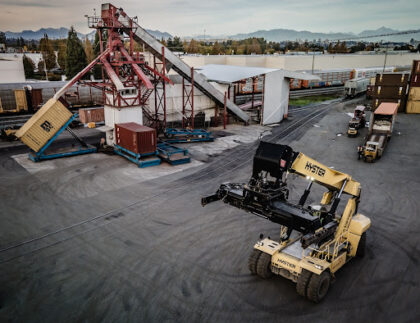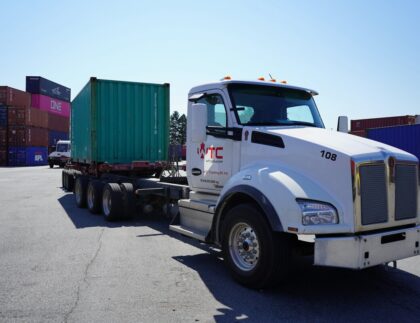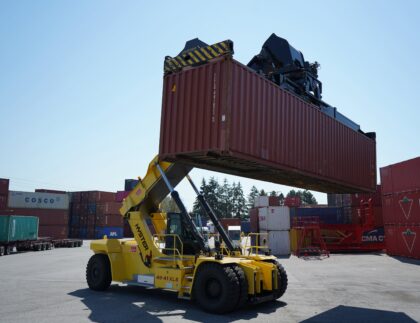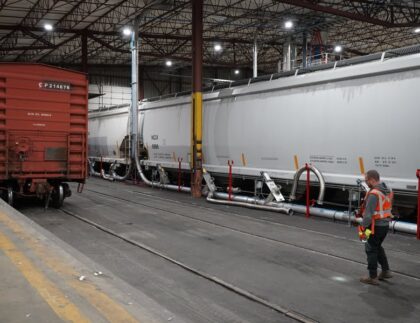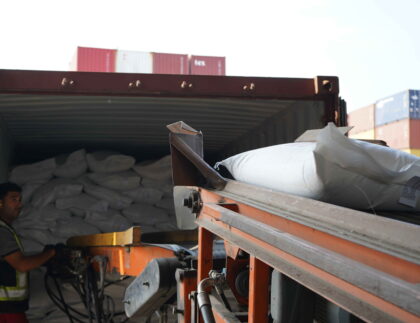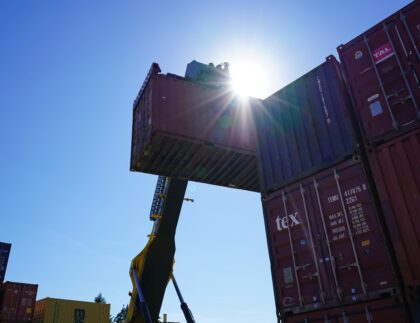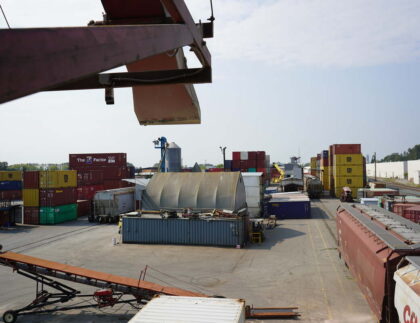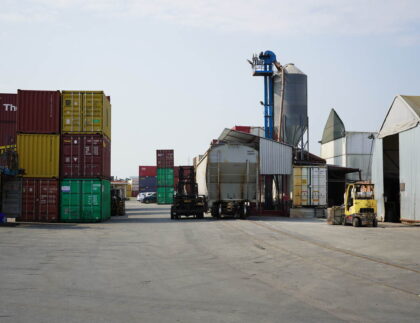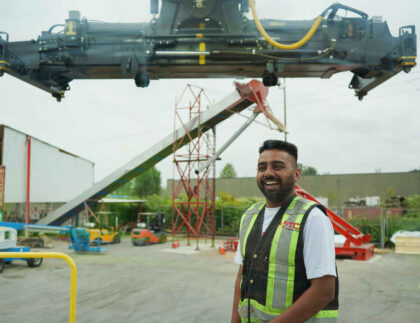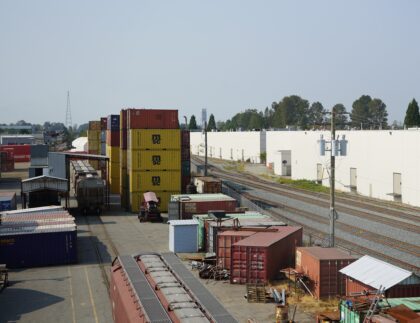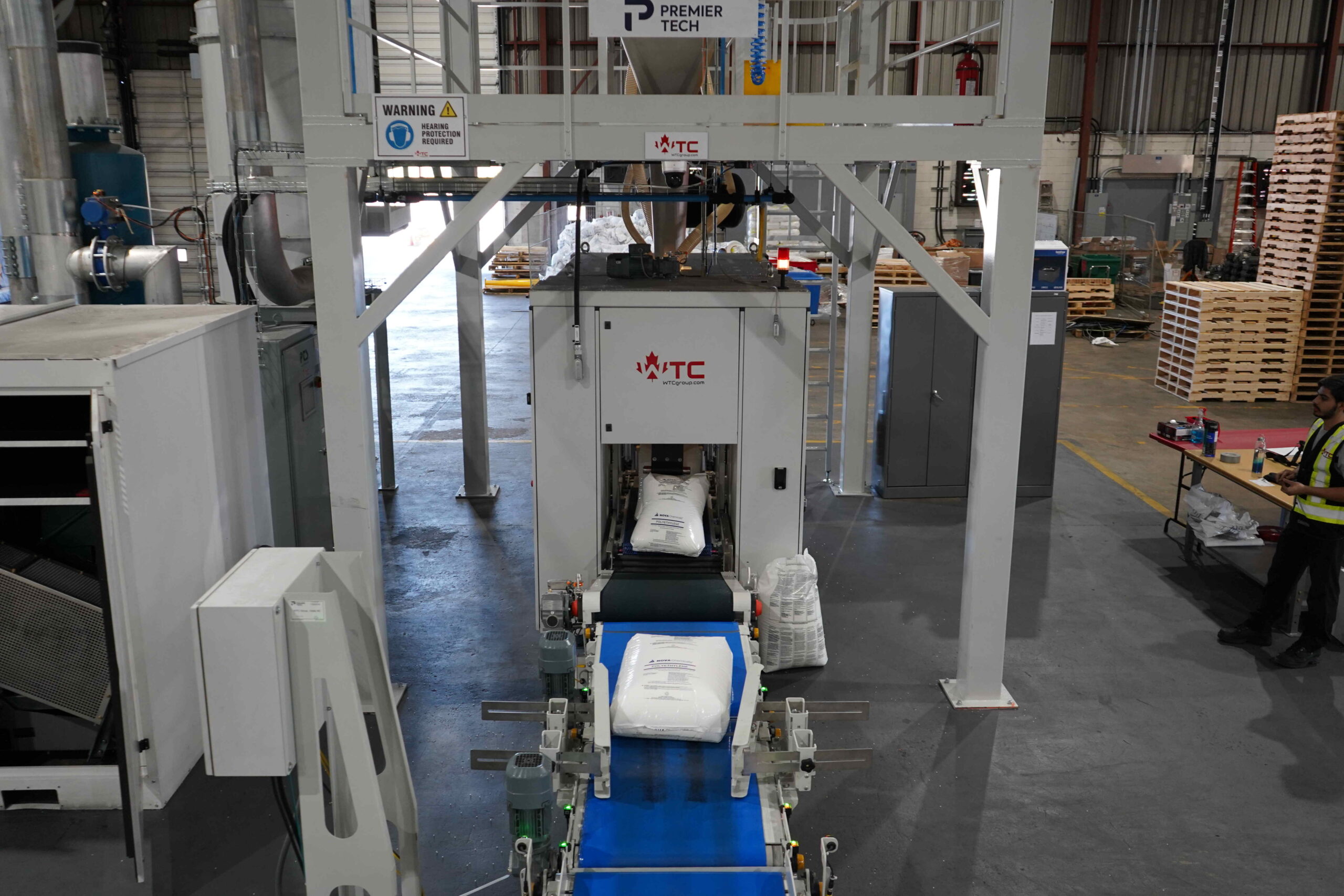
Plastics and resins are a $9.6 billion industry in Canada. WTC Group provides logistics services to major clients in the plastics industry. In this guide, we’ll explore our role in the industry and the process used to create and transport plastic pellets utilized for products people use every day.
The industry is changing, and we’re changing with it. With new laws emerging to limit the negative impact of single-use plastics, awareness is more critical than ever. As part of our commitment to conducting business ethically and environmentally soundly, we take great care in keeping plastic pellets contained so they don’t end up in waterways or soil.
This guide contains an overview of the following topics:
- WTC’s Role in the Plastics Industry
- Process of Pelletizing Plastics
- Clients & Competition
- Types of Plastics We Handle
- Operation Clean Sweep
- Environmental Impact
What Is WTC’s Role in the Plastics Industry (FAQs)?
What is our part in the plastics production line?
We receive bulk plastic resin pellets in railcars and transfer them to FFS bags (usually 25kg each) before loading into a shipping container to safely transport the product to the next user in the supply chain. Then, we transfer the pellets to containers that go to our customers.
When did WTC get started in the plastics business?
WTC has spent decades developing the most advanced and precise bagging systems for various commodities, and our newest foray is with resin. Our team started handling plastics in 2021 as a bulk company. Then, in mid-2022, we started bagging the resin at our Kingsway terminal with another expansion set for next year.
How long does the bagging process take?
Currently, we process over 30,000kgs per hour or bagged resin. That’s fast, but we’re always looking for new ways to become more efficient. A terminal expansion and second bagging line installation are slated to be complete by Q4 2023 which will more than double our capacity.
Who do we cater to?
Canada has become a global powerhouse in resin production thanks to the low-cost and clean feedstock available in North America via propane and other natural gas. As such, the Heartlands of Alberta have become a hotbed for resin production investment. WTC is looking to fill the gap in the supply chain and service these customers by allowing them to leverage our technology and equipment to be able to ship simpler™.
What is unique about our packaging?
Our fully automated process conveys the pellets via a pneumatic conveyor system to a bagging line where we form, fill and seal the bags before palletizing the product. We do this through a series of complex sensors, computers, and robotic systems which require no human intervention between railcar and completed pallet.
How did we break into this part of the industry?
WTC leaders and analysts noted an upward trend of resin exports originating in North America due to the sheer volume of production facilities coming online in the past few years. We recognized the deficit in supply chain capacity for this commodity and moved quickly to fill the processing gap. Thanks to decades of experience and investment in packaging technology, WTC was able to swiftly pivot from other bulk commodities to resin at a critical inflection point in the industry’s growth.
Why are plastics companies choosing WTC Group?
By focusing on end-to-end logistics, we’ve made life easier for our clients. Besides full automation, utilizing 40’ shipping containers has increased our capacity and allowed us to synergize with the influx of import cargo landing in Vancouver. One shipping container holds 17-18 pallets.
Flexibility and innovation have enabled us to attract clients and open up new trade flow streams, doing our part to boost the Canadian economy at a time when some industries are seeing downturns.
What Is the Process of Palletizing Plastics?
When you partner with our experienced logistics experts, you may notice an immediate change in the quality, reliability and sustainability of your operations.
Here’s an overview of the palletizing process:
- Pneumatic conveyance pipes extract the pellets from a hopper rail car and transfer them into our primary hopper at the top of the machine. The product is conveyed at over 3,600 feet per minute.
- The hopper fills, pressurizing the pellets, with a system handshake occurring seamlessly to ensure the right amount of pellets await bagging at all times.
- The bagging line creates a bag from a TFFS bagging tube film, and the hopper releases the pellets into the same.
- Each bag is filled, sealed, and weighed to ensure it meets the 25 kg labelling. A variance of more than 40g in either direction results in a rejected bag.
- Bags go through a check weigh, metal detection, and lot printing process. Quality assurance includes manual inspection to make sure all printed labels are clearly legible.
- The bags that pass the metal detector check are sent onto a series of belts to the palletizer and organized into repetitive perfect 5-bag TI-HI stacks, depending on the order requirements and pallet size.
- Full pallets travel to the shrink wrapper for secure, water-tight wrapping.
- Completed, ship-ready pallets go to the warehouse floor for staging.
- Through our customized software, ShipSmpl, the details of an order are relayed to warehouse staff where the pallets are loaded into the appropriate containers.
- Loaded containers are secured with an airbag at the back to ensure safe transportation, sealed, and stacked to await Port delivery.
- The containers are then placed on a chassis and transported to the port by truck or by rail.
Our Kingsway facility features a 170,000 sf warehouse to accommodate or hold surge capacity. In addition, our network of rail and boat transportation partners can expedite your receipt of these crucial raw materials.
What Types of Plastics Do We Handle?
The pellets we package are mainly polyethylene or polypropylene and are used to create products for numerous industries.
Polyethylene (PE)
Polyethylene, or PE, is a synthetic resin known for its versatility. It derives from the polymerization of ethylene. Polymerization involves combining smaller molecules into larger ones.
Polyethylene, a polyolefin resin, is more widely used than any other plastic. You can find it in clear food wraps, detergent bottles, automobile fuel tanks, and other products transcending industries and geography. During the final product process, manufacturers slit or spin it into fibres. Additionally, you can modify it to make it more elastic.
Polyethylene products, in general, have the following qualities:
- Low friction
- Impact resistance
- Versatile from a chemical perspective
- Electrical properties
- Lightweight
- Low moisture absorption
Polypropylene (PP)
This synthetic resin derives from polymerized propylene. Manufacturers extrude or mould polyolefin resins into a variety of products. It's tough enough to use for dashboards and bumpers, for example.
Benefits of PP include the following:
- Chemical Resistance: Because many chemicals don't react with polypropylene, it's suitable for containers and parts that store or contact these chemicals.
- Biological Resistance: It resists fungi and bacteria that cause other materials to deteriorate or become mouldy.
- Water Resistance: Its impermeable qualities make it a good match for many medical and industrial applications.
- Fatigue Resistance: Polypropylene keeps its shape after users twist or bend it. It creates a moveable hinge for plastic containers.
- Insulation: PP plastic is found in electronic components because it has excellent insulation properties.
- High Melting Point: When used in kitchen utensils, PP resists heat, preventing damage to the utensils.
- Low Cost: Polypropylene is cost-effective and accessible even by manufacturers with a low budget.
- Recyclable: This sustainable material is entirely recyclable. With repeated use, it cuts down on materials that end up in landfill.
Applications of PP Plastic include:
- Material Handling: Polypropylene is often used to make plastic pallets and other material-handling goods, depending on their required applications.
- Automobile Industry: Polypropylene enables manufacturers to make cleaner, more reliable car batteries, bumpers, interior elements, and cladding.
- Packaging Material: PP has replaced paper and cellophane as a hot packaging material safe for hot and cold food.
- Medical Applications: Medical devices and packaging for liquid pharmaceuticals.
- Housewares: Rugs, mats, carpets, and plates, to name a few
Serving Our Clients Needs in the Plastics Industry
From inland transportation, to packaging specifications and consultation, to negotiating the most cost effective and efficient ocean transportation options, WTC’s experienced team of operators and account managers can walk you through the process from A to Z.
As resin is a small but rapidly growing division at WTC, we can leverage our critical mass from other commodities and services to provide only industry leading rates and allocations for our resin shipments.
Operation Clean Sweep
WTC is a proud member of Operation CleanSweep, a global initiative aiming to fight plastic pollution. This project aims to reduce or eliminate plastic pollution originating in the manufacturing and transportation of plastic resin. With a focus on prevention, Operation CleanSweep encourages industry players to develop and implement superior containment practices.
Specifically, maintaining a clean facility helps prevent pellets from ending up in water sources and the soil. Best practices include the collection of contaminated pellets and sweeping under machines carefully. Additionally, cleaning the processing area before opening a rail car is essential. This prevents cross-contamination when dealing with different types of plastic.
The Plastics Industry Association (PLASTICS) has spent more than a decade educating manufacturers and logistics companies about the dangers of plastic resin loss and how to prevent it. The overarching message is that resin must be contained, disposed of, or reclaimed to prevent further pollution.
WTC Group decided early on to become a member, and we encourage our clients and partners to do the same.
Environmental Impact
Almost all plastic products start life as a tiny bead the size of a lentil, ironically. Because of their size and limited weight, many of these pellets end up in sewers, storm drains, and waterways. Over time, these pellets break down into tiny pieces called microplastics. Researchers and medical professionals have found these plastic bits in marine life, land animals, and people. More research is needed to determine the exact impact of microplastics on the environment.
Most microplastic pollution comes from pre-production pellets. We are proud to say that we operate a near-zero pollution facility. With a significant focus on preventive cleanup and automated packaging, WTC Group sets a good example for other logistics companies dealing with plastic pellets. We set aside contaminated or dropped pellets in a bin. We then resell these to a resin recycling plant to prevent further plastic waste.
We take our environmental safety very seriously, as we should. Environmentally harmful products such as plastic pellets are handled with the utmost care.
What Is a Plastics Circular Economy?
A plastics circular economy aims to reuse and recycle plastics as often as possible. It includes the downgraded use of non-recyclable plastic materials. In a circular economy, the following eco-friendly results can occur:
- Minimization of plastic waste
- Creating plastics from recycled products
- Reducing plastics in landfills
- Preventing leakage into waterways
Circularity can only come about through evolution in the market. This won't happen immediately. It also requires spreading information about the danger plastic waste poses to animals, people, and the environment.
For manufacturers and logistics companies, it's vital to build new relationships and transform legacy processes to run automatically and reduce waste. Fortunately, WTC Group had the foresight to automate our palletizing process using reliable, efficient tools.
As other players in the industry run to catch up, we're already looking at how we can contribute to shifting cultural norms to reduce plastic pollution even further.
Contact us online or call 1-844-WTC-GRUP (982-4787) to partner with us for your plastics logistics needs in British Columbia, across Canada, and internationally.


